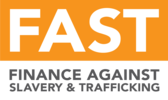Based on earlier work by United Nations University and the Permanent Mission of Liechtenstein to the United Nations, the Liechtenstein Initiative for a Financial Sector Commission on Modern Slavery and Human Trafficking was launched in September 2018. The aim of the Commission was to consider how to put the financial sector at the heart of global efforts to address modern slavery and human trafficking through a year-long global consultative process.
The creation of the Commission responded directly to calls from the G7, the G20, the UN General Assembly and the UN Security Council to partner with the private sector in tackling modern slavery and human trafficking, and to achieve the Sustainable Development Goals. The Commission was convened by Nobel Prize laureate Professor Muhammad Yunus and the Governments of Liechtenstein, Australia and the Netherlands and the Chair was Fiona Reynolds, CEO of the UN-backed Principles for Responsible Investment.
The Commission consisted of 25 Commissioners, representing a broad spectrum of the financial sector and those working to end modern slavery and human trafficking. This included survivors of human trafficking and child slavery, leaders from hedge funds, commercial and retail banks, institutional investors, development financing organizations, global trade unions, regulators, UN bodies, and civil society.
Completing its time-bound mandate, the Commission released the Blueprint for Mobilizing Finance Against Slavery and Trafficking, along with its associated Toolkit, at the UN General Assembly in September 2019.
The Blueprint gave rise to Finance Against Slavery and Trafficking. Today, FAST advises on the implementation of the Blueprint across the financial sector and undertakes research, training, special initiatives and campaigns to promote uptake of its recommendations. Its work is complemented by Delta 8.7, the Alliance 8.7 Knowledge Platform, which is also housed at United Nations University Centre for Policy Research.
In addition to Target 8.7 of the Sustainable Development Goals, FAST’s work also helps to advance approaches to Targets 8.2 on productivity through technological innovation; 8.3 on development-oriented policies, including access to financial services; 8.8 on labour rights and safe working; 8.10 on strengthening domestic financial institutions to encourage access to financial products and services; and 16.2 on end abuse, exploitation, trafficking and all forms of violence against and torture of children; and 17 on global partnerships.

